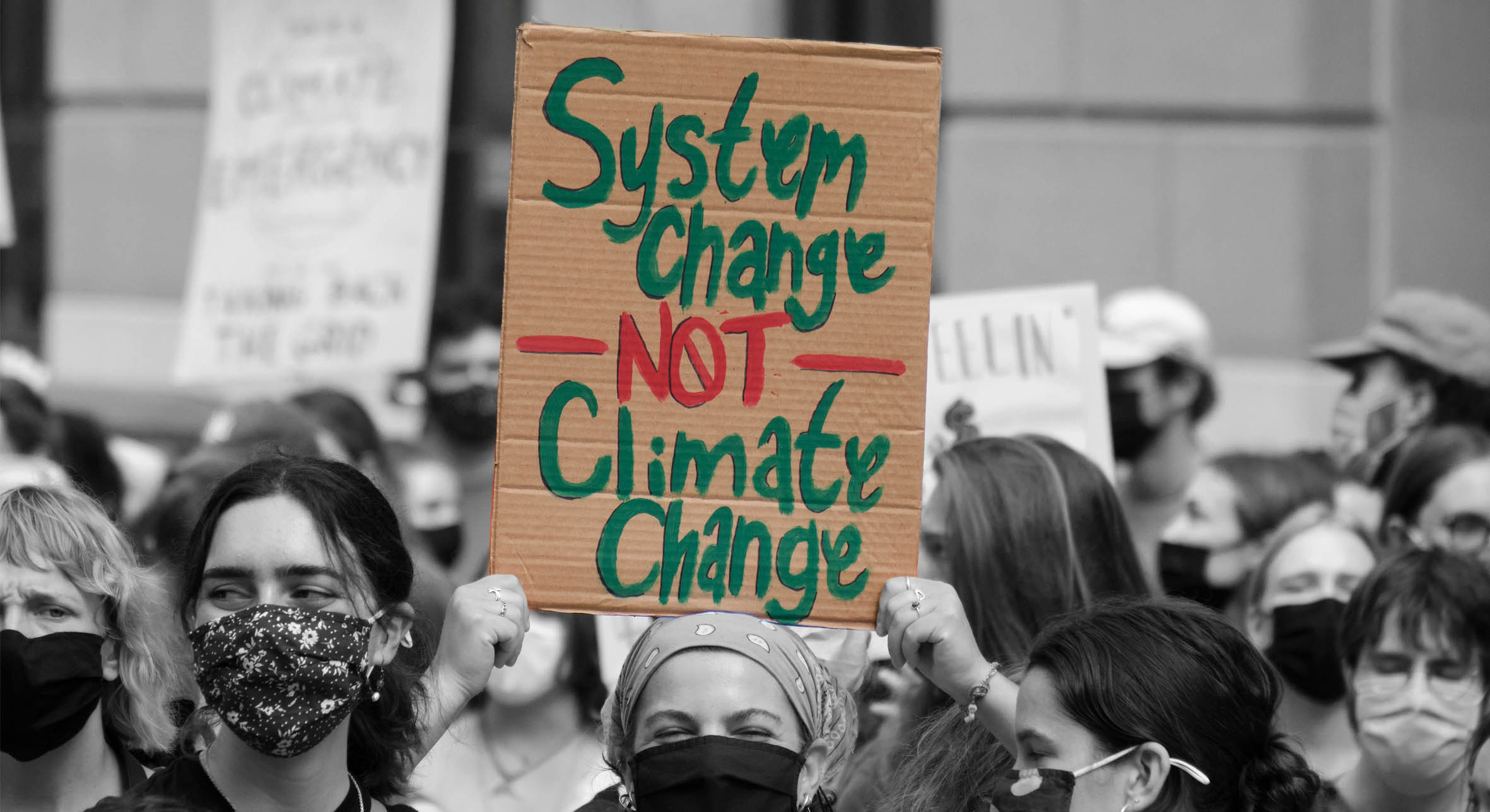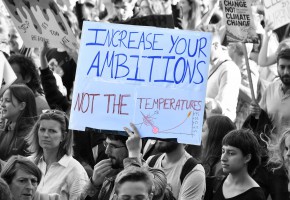
Funding in COP27: A Victory Awaiting Systemic Change, towards Saving Climate Change Efforts from the Claws of Donors - Wael Gamal

Funding in COP27: A Victory Awaiting Systemic Change, towards Saving Climate Change Efforts from the Claws of Donors - Wael Gamal
Nearly three decades into the launching of the Conferences of the Parties (COP) to combat climate change within the UN framework, in Sharm el-Sheikh, developed countries finally recognized their historical responsibility for the losses and damages inflicted on the developing world and poor countries due to the pollution they caused and are still causing since the industrial revolution. Last November, COP27 in Sharm el-Sheikh, Egypt, came out with a historic decision, albeit at the political and symbolic level, to establish a "Loss and Damage" Fund following a showdown that required extending the negotiations. But despite the decision's import, its implementation remains dependent on many details, especially with the continued global socio-economic and political tensions between considerations of justice, welfare, and even human existence, on the one hand, and prioritizing profit, the market, and control over the financial sector.
The Sharm el-Sheikh conference was expected to focus on implementation following the pledges made at the previous COP in Glasgow. However, COP27 failed to live up to expectations and did not even come close, except for the Loss and Damage Fund, which was considered a great, albeit symbolic, success. It put an end to developed countries' attempts to curb the decision at the negotiations and turn it into a mere mechanism to make it more ambiguous and less binging.
Nevertheless, the conference's final document did not mention fossil fuels as a contributor to increases in temperatures, although the world is heading quickly to exceeding the 1.5 degrees Celsius ceiling, which may entail catastrophic consequences, especially for developing countries. The direct representation of polluting and international natural gas companies, which ironically signed a plethora of gas agreements with Africa and elsewhere, also increased. But financing remains a significant impediment to efforts to mitigate and adapt to the effects of climate change sweeping the world, which means that we are far from "implementing" even the less ambitious pledges and commitments we have so far.
Financing Before COP27
According to UN reports, financing climate change mitigation in poor countries was estimated at about one trillion dollars annually. The number was raised to two trillion dollars annually by 2030 in a report by the senior researcher in climate economics, Nicholas Stern, with the launch of the COP 27 conference. The implementation plan issued by the Sharm el-Sheikh meeting consequently estimated the cost of transition to a low-carbon economy at between $4 to $6 trillion annually. According to the plan's text, fulfilling this massive financing "will require a rapid and comprehensive transformation of the financial system." However, a considerable gap appears when these needs are compared to the current reality.
Of the one hundred billion dollars annually pledged by developed countries to developing countries, the official follow-up committee on this commitment revealed that the amount did not exceed $68.3 billion in 2020. Most of these went to efforts to reduce emissions, a priority for developed countries, at the expense of adaptation, which is the urgent demand of poor countries. It is also dominated by loans and investments by major transport companies, placing an additional burden on poor countries already in a sovereign debt crisis due to the repercussions of the Corona epidemic and the worsening global economic crisis. Finally, an Oxfam report revealed that the actual value of this funding is less than $21 to $24 billion in the same year.
Predominant market-oriented solutions are based on the logic of market efficiency in confronting climate change. They rationalize corporate behavior and transform stopping pollution into a profitable activity. However, they have miserably failed to produce any progress in meeting the needs of Earth and its people. Carbon trading markets only succeeded in transforming pollution into a new area of profit at the expense of developing countries. The priorities of global finance industry profitability through lending prevailed over other forms of financing to the extent that a country like Barbados is on the verge of bankruptcy due to having to borrow--time after time--to deal with climate disasters for which developed capitalism bears historical and current responsibility.
The finance sector's leadership of efforts to confront climate finance contradicts climate and social justice. Priority must be given to long-term considerations, which is the opposite of the tendency of finance as a rentier activity that seeks quick, short-term gains. The finance industry has hijacked climate change efforts and, at the same time, continues to finance ever-expanding polluting activities, especially with the Russian war on Ukraine. This is in addition to greenwashing brown profit-making activities and falsely re-presenting them as a green economy.
Profit Priorities Still Hijack Finance
Not only did developed countries fail to fulfill their annual $100 billion pledges, but they also failed to update the figure, which is a previous commitment that should start in 2025. The decision was further postponed to the next conference in the UAE. Bilateral agreements of understanding in the field of energy dominated investments in renewable energy, particularly green hydrogen, aiming to export to Europe to meet its needs. However, this is merely an extension of the extractive logic of these investments that defines the regional policy horizon according to Europe's energy needs. This is not to mention more gas exploration agreements, prompted by international companies and under pressure from the Gulf states, which prevented any reference to fossil fuels from appearing in the summit's outputs.
Once again, COP27 came out with several market-driven initiatives, chief among them the voluntary carbon trading initiatives in Africa, an extension of an unsuccessful profit-making mechanism to new markets. Debt-for-climate swap initiatives, meaning debt forgiveness in exchange for environmentally friendly or mitigating investments, were also discussed. But this mechanism is also subject to deep criticism by civil society in developing countries. Studies confirm that in order for this mechanism to work efficiently, it must accurately determine the type of investments and their feasibility, the exclusion of greenwashing polluting projects, the quality of assets and resources that will be transferred to international investors, and other determinants. However, the lessons of previous experiences indicate that delivering on promises to reduce debt requires, besides a clever technical design, dropping a significant amount of debt.
Many obstacles still face the Loss and Damage Fund. The value of targeted commitments remains unclear, with a current balance of zero. It is also unclear whether countries such as China, classified as developing and at the same time one of the highest polluting countries, will contribute to the fund or not. There was also no agreement on the criteria that determine the countries and cases eligible to benefit from the fund, which is a very arduous future task.
Once again, COP27 proves the need for developing countries and the whole world to search for urgent policy frameworks outside financial rentier capitalism, even if they paint themselves green like a chameleon. There is an absolute necessity to explore the possibilities of debt forgiveness, to adopt expansionary policies instead of austerity, and to envision alternative models of economic management based on social/climatic justice, whose compass is directed by the public interest. Efforts to pressure the developed world to assume its historical responsibility for climate change, on the one hand, and to stop using the climate to set more debt traps, on the other, must go hand in hand with the return of public spending in playing the leading role in financing and directing adaptation and mitigation efforts. Social justice and climate justice are inseparable conditions for saving life on Earth.
Recent publications

Thematic Report: Exploiting Resources, Ignoring Rights: A Political Ecology of Water and Energy in the Arab World
Related publications


